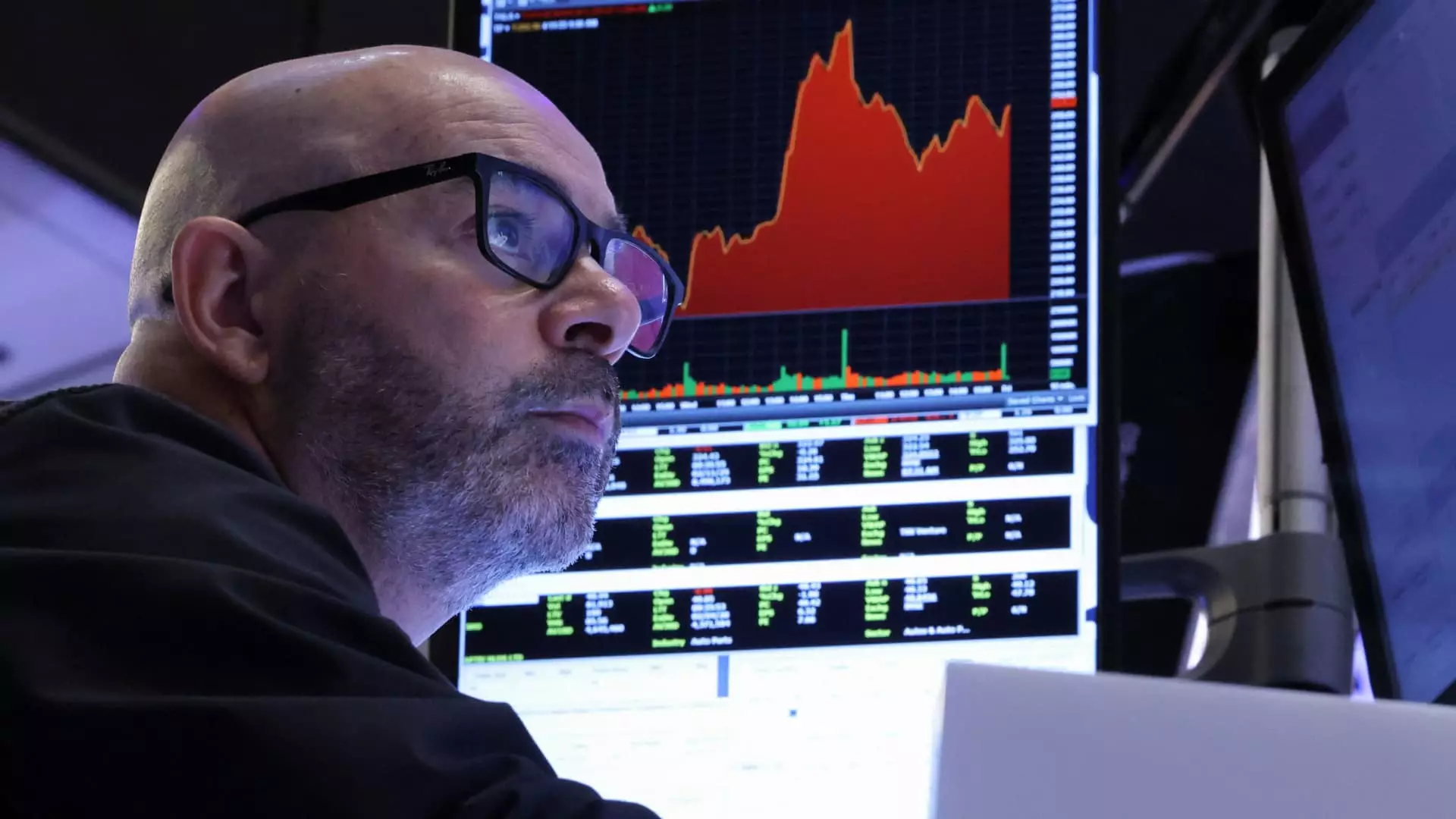The financial landscape in recent months has revealed an unsettling transformation, as the integration of zero-day-to-expiration (0DTE) options into daily trading has left market participants grappling with unprecedented volatility. Since what some have ominously dubbed “liberation day,” investors have found their nerves frayed, driven partially by the aggressive trading of these options that expire on the very day they are bought. The implications of this surge are monumental, with the S&P 500’s 0DTE options trading volume skyrocketing by an astounding 23% just this year, encompassing nearly 7% of total volume in U.S. options markets, as reported by JPMorgan.
These short-lived contracts are gaining traction among both institutional and retail investors, feeding a growing appetite for high-risk, high-reward scenarios. However, the very nature of 0DTE options—high leverage, quick flips—also poses significant risks of amplifying market turbulence. The utilization of such intricate financial instruments is a risky dance, and many analysts contend that they not only mirror existing volatility but magnify it, acting like accelerants in an already fiery market.
A New Player in Market Dynamics
Jeff Kilburg, CEO and CIO of KKM Financial, articulates this phenomenon aptly, asserting, “It’s almost like gasoline on a fire.” There’s a transformative current at work that entrenches 0DTE options as a major player in amplifying market conditions. For instance, the recent surges in volatility are not merely statistical anomalies; they are symptomatic of a broader trend where speculative trading is blurring the lines between rational investment strategy and frantic gambling.
Take, for instance, the remarkable fluctuations witnessed on the S&P 500 this past week. The index famously wobbled between extraordinary gains and steep drops, experiencing its third-largest single-day rise post-World War II after being pushed to the brink of bear market territory. Such dramatic swings raise critical questions about the sustainability of using 0DTE options as a trading strategy. Are we witnessing a new era or are we repeating the stochastic volatility cycles reminiscent of past market calamities?
The Role of Retail Investors
One cannot ignore the rising tide of retail investors, buoyed by easy access to trading platforms like Robinhood that democratize the use of options. This surge is exciting yet alarming—like opening a fire hydrant in a densely-packed city street. The participation of the average investor in complex derivatives like 0DTE options complicates market dynamics. Their enthusiastic forays into options trading may be motivated by the allure of losing less capital over short time horizons while simultaneously dreaming of outsized gains.
These retail players are often less experienced than their institutional counterparts, which raises concerns about market stability when faced with sudden economic shocks. While their participation has been a boon for volume and liquidity, it has also spurred fears of frenzied sell-offs in times of distress. As Maxwell Grinacoff from UBS notes, the configuration of these trades has fundamentally altered the markers of intraday volatility, even when these fluctuations do not translate into noticeable changes on a day-to-day closing basis.
The Search for Stability Amid Chaos
Investors today find themselves in a tug-of-war with uncertainty, as extreme market reactions catalyze an overwhelming demand for these 0DTE options. With volatility indices reaching heights not seen since the 2008 financial crisis, navigating this unpredictability has become a tightrope walk. The options market has transformed from a tool of the elite into a playground for the masses, allowing everyone from seasoned hedge fund managers to new investors trying their luck to engage in high-stakes betting.
However, this environment also calls for sobering introspection regarding the sustainability of such trading tactics. As equity derivatives gain more and more traction, the question remains: can market participants truly step back and view their strategies with rationality, or will profit motives entwine them in cycles of greed that recklessly undermine financial stability? The dance of volatility promised by 0DTE options may be exhilarating, but its ephemeral nature could lead to perilous outcomes. The allure of fast money may ultimately fade into chaos if prudent risk management is not brought back into focus.

